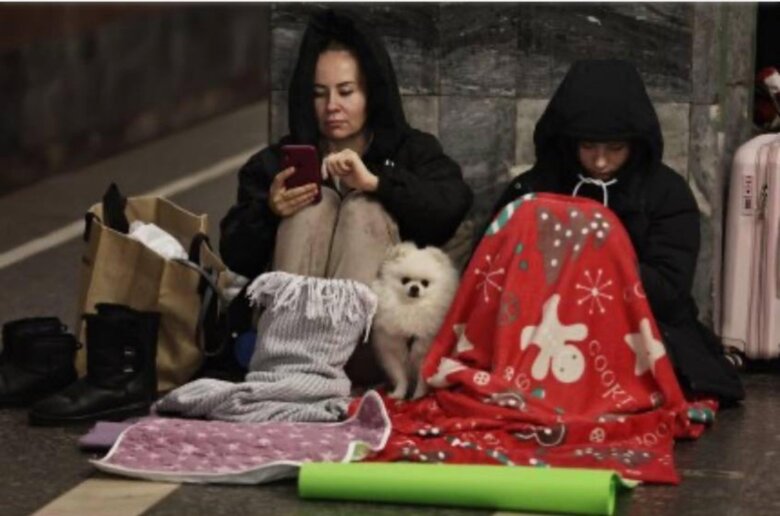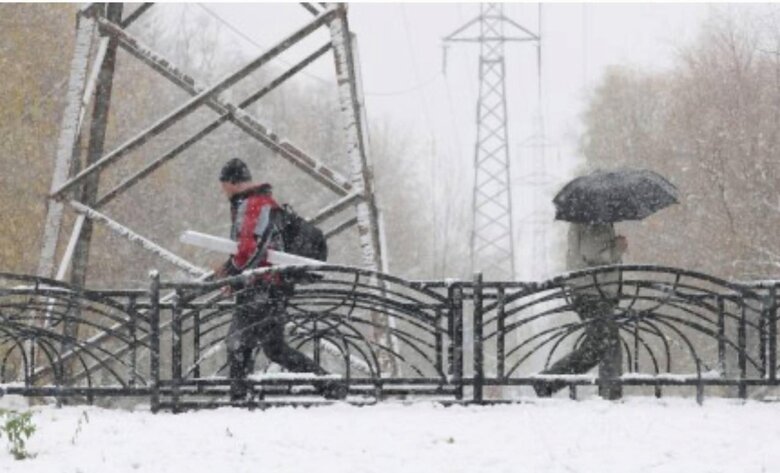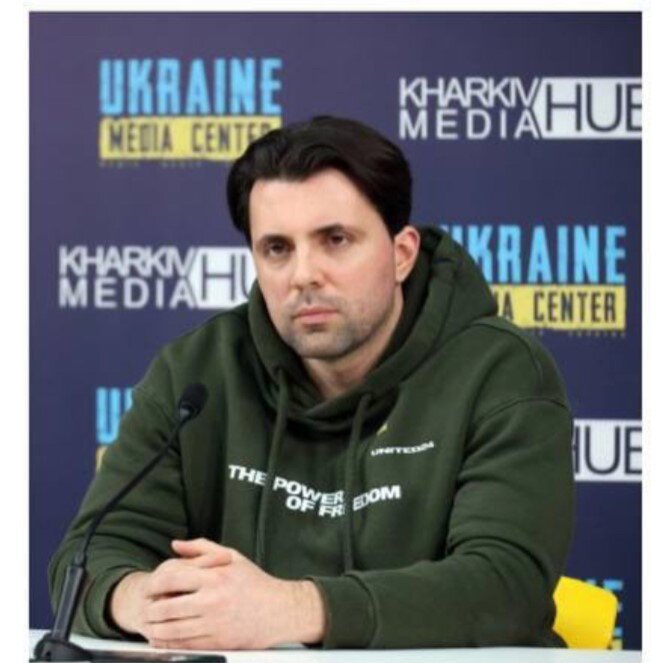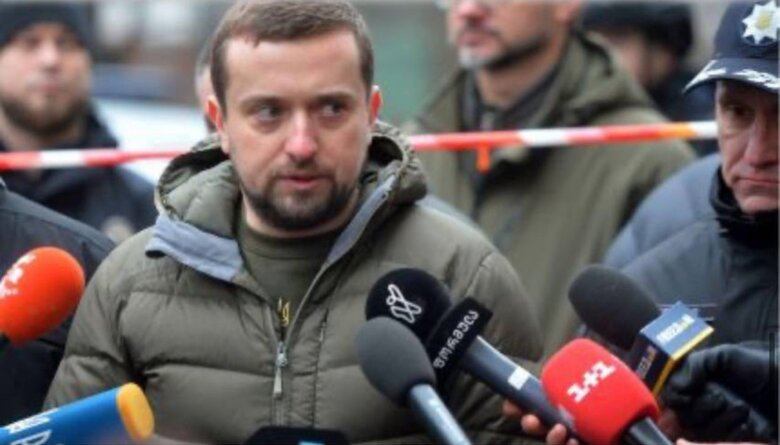The Times: Energy "corruption" puts Ukrainians in front of deadly cold in winter
Former deputy head of the Presidential Office Kyrylo Tymoshenko is an unofficial supervisor of construction projects funded by the Ukrainian government. "A former official who worked closely with the Presidential Office claimed that Tymoshenko demanded a 10 per cent commission from companies for selecting and submitting their projects for approval. The former official claimed that Tymoshenko kept large amounts of "dirty" money and distributed it to unofficial "volunteer advisers" in the Presidential Office. The official also said that Tymoshenko would take $10,000 from companies that wanted the President to visit them during official trips to the regions."
This is the subject of an article by The Times entitled "Energy "corruption" leaves Ukrainians facing a deadly freeze".
Kyiv's failure to build bunkers for substations to protect them from Russian air strikes has left the country vulnerable to winter.
At a secret location outside Kyiv, the brigadier watched as the explosions hit the concrete structure that his team of ten British military engineers, intelligence officers and diplomats had secretly helped to create.
The missile test, described by The Sunday Times' sources, was the culmination of months of hard work under the constant threat of Russian air strikes. When it ended in February, the British engineers, along with teams from America, Germany and Japan, advised their Ukrainian counterparts to build structures to protect Ukraine's energy grid from Russian attack.
Nine months later, however, President Zelenskyy's government has not done so, amid allegations that corruption in the government has brought the work to a standstill.

Around 80 per cent of Ukraine's energy infrastructure is damaged or destroyed. Without proper protection and with temperatures dropping below freezing, Ukraine faces severe and deadly winter cold.
This week, Russia launched the largest air strikes on Ukraine's energy infrastructure in months. Hundreds of thousands of people are spending up to six hours a day in the dark without heat, light or running water.
Mustafa Nayyem, the head of the agency for the protection of critical infrastructure, resigned in June in protest at the government's failures, claiming that the project was being deliberately delayed by Kyiv's refusal to provide funds allocated for its implementation.
"It was impossible to work. When you see the government creating artificial obstacles, it's useless," said Nayyem, the former head of the State Agency for the Restoration and Development of Infrastructure of Ukraine. His agency has requested 1.4 billion euros to supply bunkers, called "third-level protection" for substations. Nayyem said that vested interests were behind the blocking of funds.
"When people in the government see these billions, they can't even imagine that there is no interest for the people who deliver this money," he said. His team suspects that the project was delayed because bribes were not paid to officials in the prime minister's office who hold the financial strings. "They [the government] didn't pay the contractors; the contractors stopped all the projects."
Serhii Sukhomlyn, who replaced Nayyem, said contractors had expected "too much profit" and his agency was reviewing its contracts. He added that some security features had been "redesigned" to cut costs.

The Office of the President of Ukraine, the Office of the Prime Minister and the Ministry of Energy declined to comment.
The contractors said they had tried to continue building the bunkers, but had to take out loans to finance the minimum amount of work to continue construction - and that the structures were far from complete. At the office of one of Ukraine's leading construction companies involved in substation security contracts, officials searched the offices, allegedly acting without a warrant, seizing computers, phones and documents. The company also claimed that the government had not allocated the funds needed to build the bunkers.
"If we had the necessary funding, we would have completed them by now, I'm sure," said Mykola Timofeev, executive director of "Avtomagistral", an infrastructure company. "If the third level had been completed on time... there would have been much, much fewer power outages."
Corruption is a major obstacle to Ukraine's attempt to join the EU, and Brussels has been stressing the need for reform. "Despite its efforts, it is not ready for accession; it needs a major internal reform process," Jean-Claude Juncker, former president of the European Commission, said last year.
Currently, to prevent the collapse of its energy system, Ukraine relies on "tier one and two" defences of UK-supplied gabions - primitive stone-filled cages - and large concrete protective arches above ground, as well as a number of advanced air defence systems provided by its Western partners.

If Donald Trump cuts aid to Ukraine when he takes office in January, Kyiv will have to limit its air defence missiles, likely allowing more Russian missiles to hit targets. Ukrainian industry and the country's shattered economy, key parts of the resilience plan Zelenskyy announced to Ukrainian MPs last week, will suffer. Without the ability to heat their homes, millions more Ukrainian refugees could head west.
In September, following the summer power cuts, the Zelenskyy Administration orchestrated the dismissal of Volodymyr Kudrytskyi, CEO of the State Energy Company of Ukraine, suggesting that he was responsible for the failure to protect the power grid. Critics say that this move, and the cabinet reshuffle that accompanied it, only consolidated power in the hands of Zelenskyy's chief of staff, Andrii Yermak, and his deputies. Government insiders say that one of these aides, Kyrylo Tymoshenko, is an unofficial protector of government construction projects.
A former official who worked closely with the Presidential Office alleged that Tymoshenko demanded a 10 per cent commission from companies for selecting and submitting their projects for approval. The former official claimed that Tymoshenko kept large amounts of "dirty" money and distributed it to unofficial "volunteer advisers" in the Presidential Office. The official also said that Tymoshenko would take $10,000 from companies that wanted the President to visit them during official trips to the regions.

Tymoshenko's spokesperson denied the allegations: "Kyrylo Tymoshenko is not involved in making any decisions on the construction of infrastructure facilities and is not involved in the financing or management of these projects. As for the allegations of wrongdoing, only an official investigation should ensure objectivity and transparent establishment of the truth."
Additional reporting by Marian Prysiazhniuk, The Times
